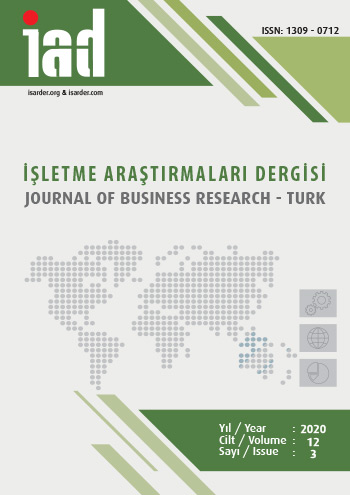The Effect of Board Structures on Financial Performance in Family Businesses: The Case of Borsa Istanbul in Turkey
The Effect of Board Structures on Financial Performance in Family Businesses: The Case of Borsa Istanbul in Turkey
Author(s): Aylin Poroy Arsoy, Yasemin Ertan, Tuba Bora Kılınçarslan, Olcay BektaşSubject(s): Business Economy / Management, Financial Markets, Accounting - Business Administration
Published by: Orhan Sağçolak
Keywords: Family businesses; Corporate governance; Board structures; Financial performance; Borsa Istanbul;
Summary/Abstract: Purpose – The aim of this study is to analyze the relationship between the structures of the board of directors and financial performances of family businesses listed on the Borsa Istanbul. Design/methodology/approach – In this study, in parallel with the report of the European Commission, if the entrepreneur who established or acquired the firm (share capital) or their families or descendants possess 25 percent of the decision-making rights mandated by their share capital, the business has been accepted as a family business. As the determinants of the board structure of the businesses; the board size, the non-executive member rate in the board, the independent member rate in the board and the women member rate in the board were used. Benefiting from the previous research, financial performances of businesses are measured by return on assets (ROA), return on equity (ROE), return on sales (ROS) and leverage (LEV). A total of 160 family businesses (except financial institutions) in Borsa Istanbul which can be reached board structure of businesses are included in the scope of the research. Data on the board structures and financial performances of businesses belong to January 1-December 31, 2018. The relationship between the board structures and financial performances of family businesses has been tested by regression analysis. Findings – As a result of the analysis, it has been found that there is no significant relationship between the board structures of family businesses and ROA, ROE, ROS. On the other hand, the model between the board structures of family businesses and LEV (F = 3.304, sig. = 0.012) has been found significant. Accordingly, while a negative relationship has been found between the independent member rate in the board and LEV, there is no significant relationship between the board size, non-executive member rate, women member rate and leverage. Discussion – According to the findings, it can be stated that the board size, rate of non-executive members, rate of independent members and rate of female members in family businesses do not affect financial performance in terms of ROA, ROE, ROS. However, it can be said that the leverage decreases as the rate of independent members in the board of directors in family businesses increase.
Journal: İşletme Araştırmaları Dergisi
- Issue Year: 12/2020
- Issue No: 3
- Page Range: 2531-2542
- Page Count: 12
- Language: English

